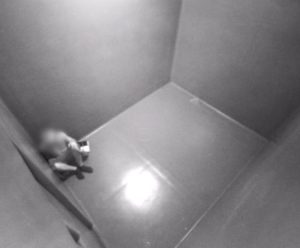
A troubling new report into the treatment of two young people in the Adelaide Youth Training Centre (AYTC) has highlighted the need for Youth Justice to review their use of isolation and how they offer rehabilitation for the young people detained in the centre.
The latest Ombudsman SA report which was released early this week has criticised the Department of Human Services (formerly Department for Communities and Social Inclusion) for its treatment of two young people in the AYTC by subjecting them to inhumane treatment, including extended periods of isolation and solitary confinement as a form of punishment for their behaviour.
In 2017, based on concerns shared by our office, the Ombudsman investigated the treatment of the young males (both 17 at the time) who were confined to their cells for more than 22 hours per day. The young people were not provided sufficient access to exercise, education, contact with family and experienced a lack of cultural recognition and support.
Training Centre Visitor Penny Wright has expressed her great concern these practices occurred and says that these are not isolated examples of the inappropriate use of seclusion and isolation.
“Isolation and segregation can be very, very damaging – especially to young people who have already experienced trauma in their lives – that’s why there are serious restrictions on these practices.”
“As the Ombudsman noted, rather than this particular segregation always being a response to the young people’s behaviours, their poor behaviour was often actually due to long periods of isolation.”
The Ombudsman referred to the views of the Royal Australian and New Zealand College of Psychiatry that-
“Punitive approaches to the management of youth justice services… are unlikely to resolve the behavioural issues of detainees; instead, they serve to reinforce the sense of mistrust experienced by many children and young people in custody. Without a trauma informed approach to the management of youth justice centre, at-risk children and young people will continue to face significant obstacles in their paths to recovery and rehabilitation, and staff in youth detention centre will continue to face significant difficulties in managing children and young people in their care.”
According to the Ombudsman, “A functioning youth justice system should not cause the young person further harm or contribute to their reoffending. The system should not do any harm to a young person and young people should leave the youth justice system in a better life position than when they entered it. In my view, the youth justice system failed [these two young people].”
The investigation concluded the treatment of the two young people was ‘unreasonable, wrong, oppressive, unjust and contrary to law’. The Ombudsman made 20 recommendations, all of which the Department of Human Services has accepted.
Penny acknowledges the department has made some improvements since these events in 2017 and has agreed to make further changes.
“I do think Youth Justice has a new willingness to look carefully at their practices and make real changes,” Penny said.
“We know of a number of young people with complex needs in AYTC today who will benefit if the department acts on these recommendations swiftly. As part of my role as Training Centre Visitor, my staff and I will be monitoring the extent to which the reforms are taken up.”
